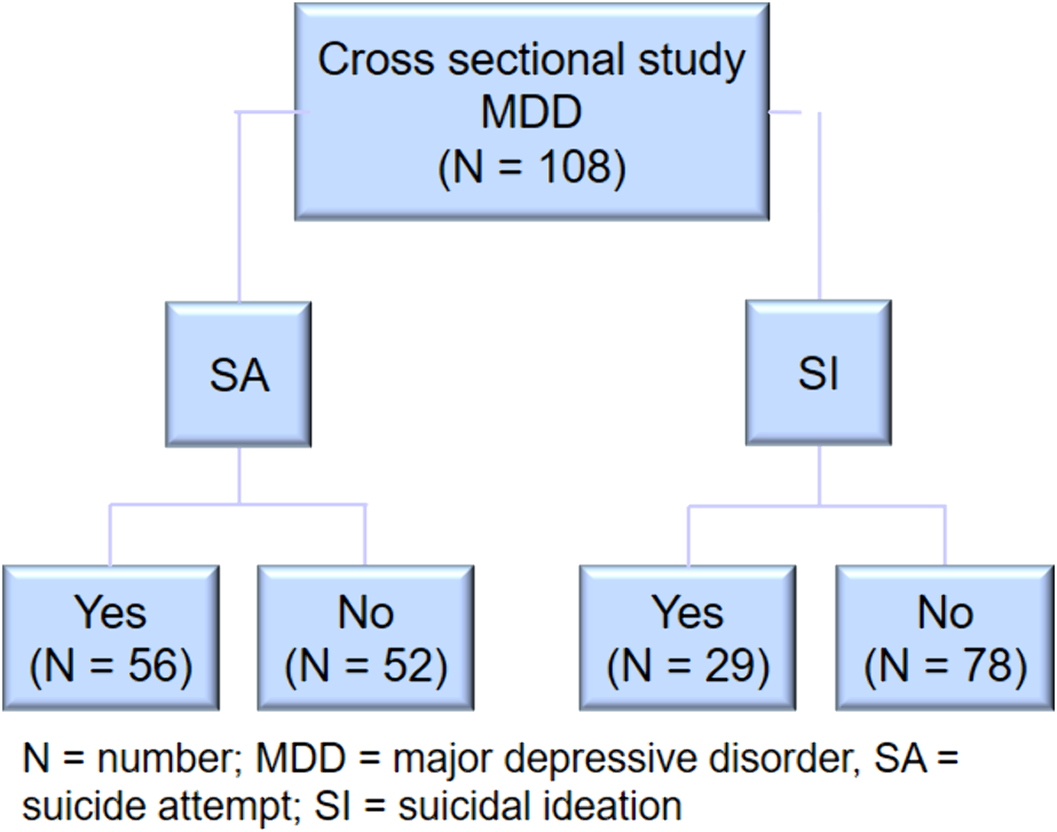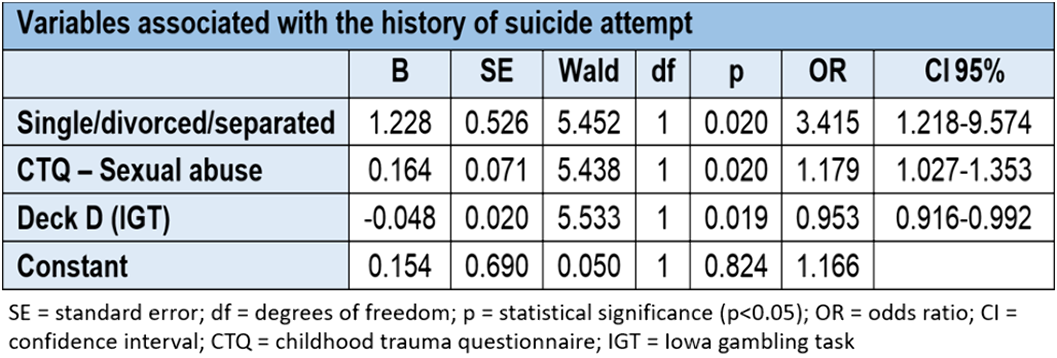Open access
E-Poster Presentation
Abstract
Effects of the pandemic on the mental health of children and adolescents. review and current scientific evidence of the SARS-COV2 pandemic
-
- Published online by Cambridge University Press:
- 13 August 2021, pp. S223-S224
-
- Article
-
- You have access
- Open access
- Export citation
Oral Communications
Abstract
Two-eyed seeing as a philosophy to facilitate communication between indigenous counselors and psychiatry about mind and mental health
-
- Published online by Cambridge University Press:
- 13 August 2021, p. S105
-
- Article
-
- You have access
- Open access
- Export citation
E-Poster Presentation
Abstract
Deviations of personality development in children from families of different social status
-
- Published online by Cambridge University Press:
- 13 August 2021, pp. S446-S447
-
- Article
-
- You have access
- Open access
- Export citation
Eating disorders and diabetes: A meta-analysis
-
- Published online by Cambridge University Press:
- 13 August 2021, pp. S359-S360
-
- Article
-
- You have access
- Open access
- Export citation
Stress is associated with larger perivascular spaces in depression: A 7-tesla MRI study
-
- Published online by Cambridge University Press:
- 13 August 2021, p. S332
-
- Article
-
- You have access
- Open access
- Export citation
Drug utilization of paliperidone in adolescent schizophrenia patients: A retrospective cohort study in China
-
- Published online by Cambridge University Press:
- 13 August 2021, p. S511
-
- Article
-
- You have access
- Open access
- Export citation
Symposium
Abstract
Past, present and future of psychiatry
-
- Published online by Cambridge University Press:
- 13 August 2021, p. S17
-
- Article
-
- You have access
- Open access
- Export citation
E-Poster Presentation
Abstract
Tourette’s syndrome: Alternative approaches to a clinical case refractory to conventional therapy
-
- Published online by Cambridge University Press:
- 13 August 2021, pp. S489-S490
-
- Article
-
- You have access
- Open access
- Export citation
Symposium
Abstract
Risk factors for suicidal behaviours in late-onset bipolar disorder
-
- Published online by Cambridge University Press:
- 13 August 2021, p. S29
-
- Article
-
- You have access
- Open access
- Export citation
Debate
Abstract
Should schizoaffective disorder be diagnosed cross-sectionally (ICD-11) instead of longitudinally (DSM-5)?: PRO
-
- Published online by Cambridge University Press:
- 13 August 2021, p. S4
-
- Article
-
- You have access
- Open access
- Export citation
Symposium
Abstract
The WPA programme on implementing alternatives to coercion
-
- Published online by Cambridge University Press:
- 13 August 2021, pp. S26-S27
-
- Article
-
- You have access
- Open access
- Export citation
E-Poster Viewing
Abstract
Psychodynamic phenomena in obese patients
-
- Published online by Cambridge University Press:
- 13 August 2021, p. S701
-
- Article
-
- You have access
- Open access
- Export citation
Group therapy for health care workers in a general hospital during the COVID-19 pandemic
-
- Published online by Cambridge University Press:
- 13 August 2021, p. S675
-
- Article
-
- You have access
- Open access
- Export citation
Oral Communications
Abstract
Association of traumatic events in childhood, impulsivity and decision-making with previous suicide attempt and/or current suicidal ideation in adult patients with major depressive disorder
-
- Published online by Cambridge University Press:
- 13 August 2021, pp. S177-S178
-
- Article
-
- You have access
- Open access
- Export citation
E-Poster Presentation
Abstract
Co-use of tobacco and cannabis: Complicated partnerships
-
- Published online by Cambridge University Press:
- 13 August 2021, p. S575
-
- Article
-
- You have access
- Open access
- Export citation
On the role of social position on extreme stress appraisal: Implications for post-traumatic stress disorder
-
- Published online by Cambridge University Press:
- 13 August 2021, p. S448
-
- Article
-
- You have access
- Open access
- Export citation
E-Poster Viewing
Abstract
Gaming addiction among Tunisian adolescent
-
- Published online by Cambridge University Press:
- 13 August 2021, p. S824
-
- Article
-
- You have access
- Open access
- Export citation
Dehydroepiandrosterone sulfate (DEHA-S), cortisol and adrenocorticotropic hormone (ACTH) levels in drug-naive, first episode patients with psychosis
-
- Published online by Cambridge University Press:
- 13 August 2021, pp. S808-S809
-
- Article
-
- You have access
- Open access
- Export citation
E-Poster Presentation
Abstract
Assessing altered executive functioning in substance use disorder: Evidence from a novel neurocognitive screening battery
-
- Published online by Cambridge University Press:
- 13 August 2021, p. S561
-
- Article
-
- You have access
- Open access
- Export citation
Bleuler’s a or autism spectrum disorder in adults?
-
- Published online by Cambridge University Press:
- 13 August 2021, pp. S540-S541
-
- Article
-
- You have access
- Open access
- Export citation




